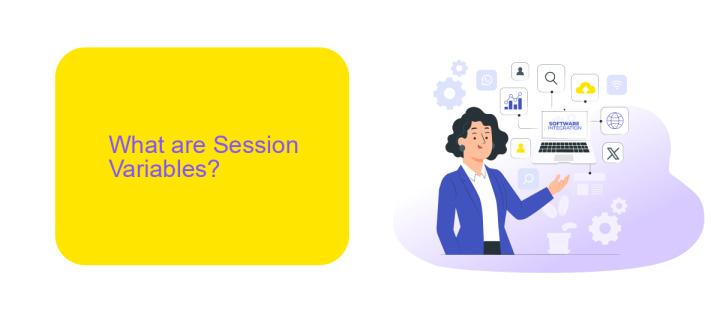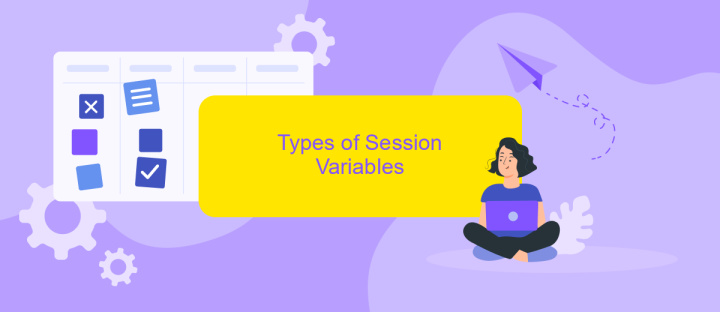What is Session Variable in UiPath
In the realm of Robotic Process Automation (RPA), UiPath stands out as a powerful tool for automating repetitive tasks. One crucial concept within UiPath is the session variable, which plays a vital role in managing data across different workflows and activities. This article delves into what session variables are, their significance, and how to effectively utilize them in your automation projects.
Introduction
In the realm of robotic process automation (RPA), UiPath stands out as a powerful tool for automating repetitive tasks. One crucial aspect of UiPath is its ability to manage data through session variables. Session variables are temporary storage locations that hold data during the execution of a workflow, making it easier to pass information between different parts of the automation process.
- Temporary data storage
- Facilitates data sharing between workflows
- Enhances automation efficiency
Understanding session variables is essential for optimizing your UiPath projects. They help streamline the automation process by reducing redundancy and improving data handling. For those looking to integrate UiPath with other services, tools like ApiX-Drive can be invaluable. ApiX-Drive simplifies the integration process, allowing seamless data transfer between UiPath and various external applications, thereby enhancing your automation capabilities.
What are Session Variables?

Session variables are temporary storage mechanisms used to retain data during a user's interaction with an application. In UiPath, these variables play a crucial role in maintaining information that needs to persist across different activities within a workflow. They are particularly useful for storing user-specific data, such as login credentials or preferences, which can be accessed and modified throughout the session.
Unlike regular variables that lose their value once the workflow ends, session variables maintain their data until the session is explicitly terminated. This ensures a seamless user experience by preserving important information. For instance, when integrating with external services like ApiX-Drive, session variables can store API tokens or user-specific settings, enabling smooth and efficient data exchange. Utilizing session variables effectively can significantly enhance the functionality and user-friendliness of your UiPath automations.
Types of Session Variables

Session variables in UiPath are essential for managing data during the execution of workflows. They help in maintaining state information and passing data between different parts of the automation process. Understanding the types of session variables can significantly enhance the efficiency and flexibility of your automation projects.
- Global Session Variables: These variables are accessible throughout the entire workflow, regardless of the scope. They are ideal for storing data that needs to be shared across multiple activities or sequences.
- Local Session Variables: These are confined to a specific scope or sequence within the workflow. They are useful for temporary data storage that is only relevant within a particular part of the process.
- Persistent Session Variables: These variables retain their values even after the workflow execution is complete. They are beneficial for scenarios where data needs to be preserved between different runs of the automation.
By leveraging these types of session variables, you can create more robust and scalable automation solutions. Tools like ApiX-Drive can further enhance your workflows by providing seamless integration capabilities, ensuring that your session variables are effectively managed across different systems and applications.
Benefits of Using Session Variables

Session variables in UiPath provide a powerful way to manage and maintain data across different workflows and activities. By storing information in session variables, you can easily pass data between different parts of your automation process without the need for complex data transfer methods.
One of the key benefits of using session variables is their ability to enhance the efficiency and reliability of your automation projects. They help in reducing redundancy and ensure that data is consistently available throughout the session, which is particularly useful in large-scale automation scenarios.
- Improved data management by maintaining state across different workflows
- Reduced redundancy and simplified data transfer methods
- Enhanced reliability and consistency of automation processes
- Seamless integration with services like ApiX-Drive for streamlined data handling
Overall, session variables are an essential tool for any UiPath developer looking to create robust and efficient automation solutions. By leveraging session variables, you can ensure that your workflows are more cohesive and less prone to errors, ultimately leading to more successful automation projects.
Use Cases of Session Variables
Session variables in UiPath are essential for maintaining state and passing data between different parts of an automation process. One common use case is in web automation, where session variables can store user credentials or session tokens, ensuring seamless navigation across multiple web pages without requiring repeated logins. This is especially useful in scenarios where the automation interacts with web applications that require authentication, as it reduces redundancy and enhances efficiency.
Another significant use case is in integrating with external services and APIs. For instance, when using a service like ApiX-Drive to connect various applications, session variables can hold API keys, tokens, or other necessary credentials. This allows for secure and efficient data transfer between UiPath and external systems. By utilizing session variables, automation workflows can dynamically adapt to different sessions, ensuring that each interaction with external services is both secure and contextually relevant.
FAQ
What is a session variable in UiPath?
How do you create a session variable in UiPath?
Can session variables be shared between different robots?
How do you manage session variables when integrating UiPath with external services?
What are the best practices for using session variables in UiPath?
Time is the most valuable resource in today's business realities. By eliminating the routine from work processes, you will get more opportunities to implement the most daring plans and ideas. Choose – you can continue to waste time, money and nerves on inefficient solutions, or you can use ApiX-Drive, automating work processes and achieving results with minimal investment of money, effort and human resources.

